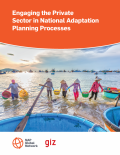
The strategic and well-informed inclusion of the private sector in climate change adaptation planning and activities must be a key part of all countries’ efforts to adapt to the impacts of climate change; they will be key partners in the design, financing and implementation of adaptation priorities. This study aims to offer guidance to governments and their partners on how to engage the private sector in the National Adaptation Plan process.
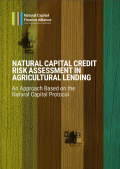
The agricultural sector is highly vulnerable to environmental risk, be it from climate change or the breakdown of ecosystems. This new sector-specific guide provides a framework for the inclusion of natural capital considerations into credit risk assessment for agricultural lending. It aligns natural capital risks and opportunities into business decision-making, enabling financial flows to be directed to the best-managed, most sustainable projects.
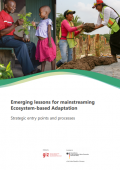
This report aims to contribute to a better understanding of the barriers and successes of Ecosystem-based Adaptation (EbA) mainstreaming and governance aspects by sharing insights and lessons learned from five partner countries: Philippines, Viet Nam, South Africa, Mexico and Peru. It provides an overview of key EbA concepts, principles, and approaches, and spotlights seven strategic entry points for mainstreaming EbA alongside related case studies.
The aim of this document is to present background information for a more “popular” introductory guide to LCM which will be produced in the coming months and is – together with an accompanied slide show - intended to be used to promote life cycle thinking globally and be basis for various training activities.
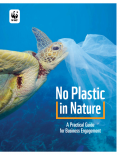
This report aims to provide guidance to businesses on how to engage on the pervasive, global issue of plastic pollution. Through this report, WWF aims to demonstrate how time-tested management practices, buoyed by novel collaborations, can help bring major shifts towards a better-functioning plastics system.
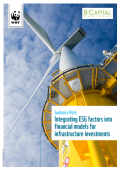
This Guidance Note aims to illustrate how the consideration of ESG factors may inform the forecasting of financials, such as revenues, operating costs and capital expenditure, etc. in the context of assessing an infrastructure asset. It selects twelve ESG factors and identifies their potential risks and opportunities for infrastructure assets as they may emerge throughout an asset’s life cycle (development, construction, operation, and decommissioning). It then sets out to quantify these risks and opportunities for the purpose of developing or adjusting the financial forecasts of such assets.
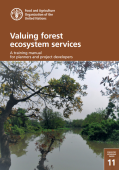
This manual is intended as a training tool for field practitioners working in environmental and forest agencies who must consider the environmental costs and benefits of development projects but who don not necessarily have a background in environmental economics.
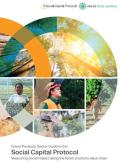
This guide aims to support companies from the forest products value chain in applying the Social Capital Protocol by providing additional guidance and case study examples that are sector specific.
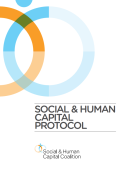
The Social Capital Protocol aims to help companies understand their relationship with society and how to make decisions in a way that will enhance the stock of social capital for the benefit of society and business. The Protocol sets out a consistent process for business to measure and value both social capital impacts (the positive and negative effects business has on society) and social capital dependencies (the human and social resources and relationships that businesses rely on in order to create and sustain value).
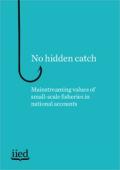
It is notoriously difficult to obtain data for fisheries, especially for the more elusive small-scale sector, which tends to operate under the radar. These guidelines aim to assist national statistics officers and others improve the way they account for small-scale fisheries (SSF). We do this in two steps: 1)...
